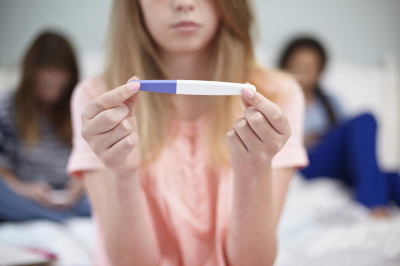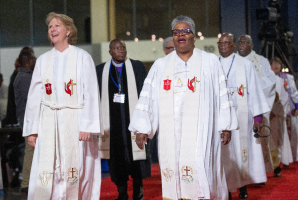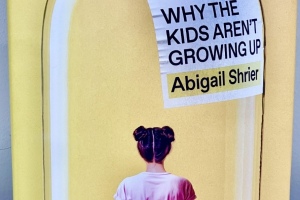3 resolutions pro-lifers should make this year

To change the narrative surrounding abortion and encourage mothers to give their children life, it is essential that we understand the challenges mothers face and come alongside them in their journeys. Take a moment to consider these three pro-life resolutions you should make in the new year.
Educate yourself about the struggles pregnant women face
Pro-life people make comments about abortion that sometimes give me pause. Oftentimes, because pro-life advocates are especially aware of the moral and scientific tragedy of abortion, it is easy for them to make assumptions about their own lives. Sometimes, people will say — or imply — that they “would never get an abortion.” Having spoken with women who got abortions, I now bristle when pro-lifers make such comments. The truth is that women often get an abortion because of the dread they feel when faced with an unexpected pregnancy. Their judgment can become clouded as they enter a “fight or flight” response. Sometimes, women are in an abusive relationship, or they had decided not to have children. Instead of separating ourselves from women in this position, we should make every effort to understand the perspective of a woman seeking an abortion so we can encourage her to choose life.
Research indicates that there are many reasons women get an abortion, suggesting that abortion is sought as a solution to a multi-faceted dilemma. A 2013 study found that “[t]he predominant themes identified as reasons for seeking abortion included financial reasons (40%), timing (36%), partner related reasons (31%), and the need to focus on other children (29%).” The study also noted that 64% of women “reported multiple reasons for seeking an abortion crossing over several themes,” meaning there is not just one reason when it comes to abortion decisions.
ShoutYourAbortion.com contains stories from women sharing their reasons for getting abortions and appears to attempt to empower women in their decisions. The site contains quotes from women such as “I think about it every day, but I’m so glad I didn’t go through with pregnancy” and “It was absolutely the right choice.” One woman noted, however, “It might be an unpopular opinion, but I didn’t feel empowered or strong getting an abortion.” Women share their stories and often claim to feel no regret towards their decisions. But there is pain underneath the words of these stories and an underlying sense that even when women say they do not regret abortion, they wish they could have made a different choice.
If a woman does not think you have compassion for her situation, she will not turn to you for help. By acknowledging the real fear women experience when they are faced with an unplanned pregnancy, we can break through their barriers and be there for them when they need it most.
Stay informed on abortion legislation
The political side of the pro-life movement can be daunting, and it can be difficult to keep track of the pro-life laws, pending legislation, and political races across the country. It is helpful, however, to be able to discuss the facts surrounding abortion and pro-life laws when faced with confrontational conversations. People are often grossly misinformed about pro-life legislation because the media paints such efforts in a negative light. This can turn people against the pro-life movement and cause women to be confused about their pregnancies, especially when stories in the media equate miscarriage and abortion.
Although many databases may have a pro-abortion slant, they can still be helpful to understand the status of pro-life laws, as well as the language of pro-abortion advocates. The New York Times’ site and the Guttmacher Institute offer this, while pro-life research and information about safeguards for pregnant women can be found at the Charlotte Lozier Institute. In a culture where pro-life efforts are not popularly discussed, we should work to spread the truth about pro-life policies.
Embrace post-abortive women
Pro-abortion groups attempt to re-enforce the false narrative that pro-life people do not care about women. The pro-life community can reverse this by reminding men and women that we will offer support — even if they have made the heartbreaking decision to get an abortion.
Although the scientific community often dismisses the post-traumatic stress symptoms that women experience after an abortion, women and men struggle with grief when they lose a child to abortion.
Abortion Trauma Recovery, Inc., defines abortion trauma as a “type of post-traumatic stress disorder” that often affects people months and years following an abortion. The charity notes that “[a]bortion Trauma currently has no official definition and is largely unrecognized and untreated with the incidence of severe psychological trauma unknown.” The symptoms surrounding abortion trauma include mental health problems, self-destructive behavior, relationship issues and replacement pregnancies. In a testimonial, one woman recalls, “I have spent many years trying to push the memory of what I have done to the back of my mind, but it won’t stay there. I have constantly compared my dead child to what he would have been doing had he lived. I understand that most women who choose to abort experience the same feelings.”
The pro-abortion movement is loud and offers false compassion for women seeking an abortion and for those who have had an abortion. When women are in difficult circumstances and feel helpless, it is natural for them to turn to voices that offer refuge. In the same way, they are more likely to surround themselves with a community where they do not feel judged if they have had an abortion. Pro-life advocates can be the ones to provide a true helping hand to women facing unplanned pregnancies, but they should also offer a healing hand to any woman who has had an abortion. Organizations such as Project Rachel Ministry offer support and retreats for people who have gone through the heartbreaking trauma of abortion; but the pro-life community should do more to help men and women in this situation.
Educating yourself about pro-life policies, understanding why women get abortions, and deciding to provide a safe place for post-abortive women are essential New Year’s resolutions for members of the pro-life movement. By taking these steps, we can begin to tell women a different story about their unplanned pregnancy: they can do this, they are strong enough, and they are not alone.
Charlotte Pence Bond is an author and ambassador for Save the Storks, a nonprofit whose mission is to create a story of hope and empowerment for every woman in an unplanned pregnancy. Save the Storks empowers women with resources, education and support to help them choose life.




























